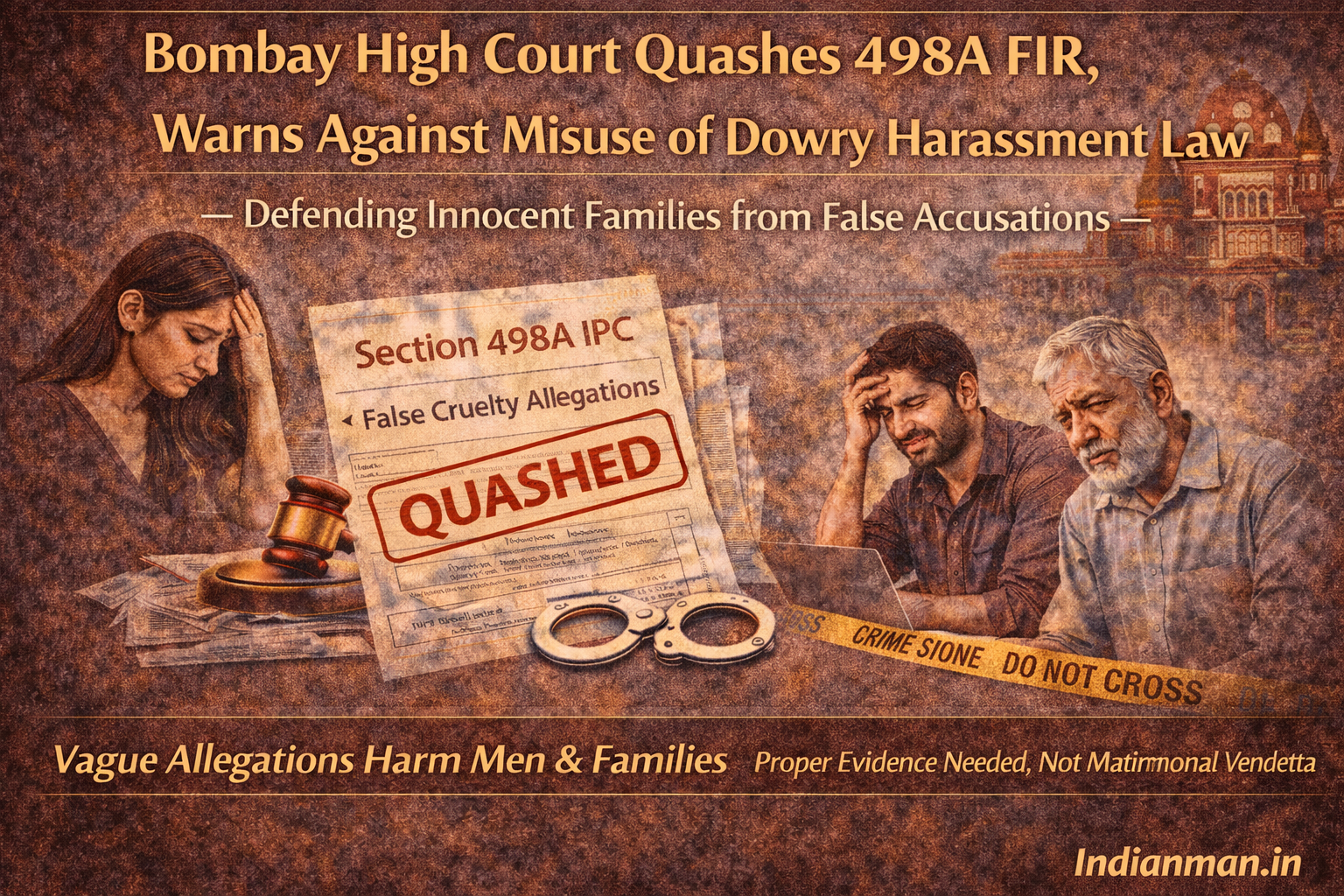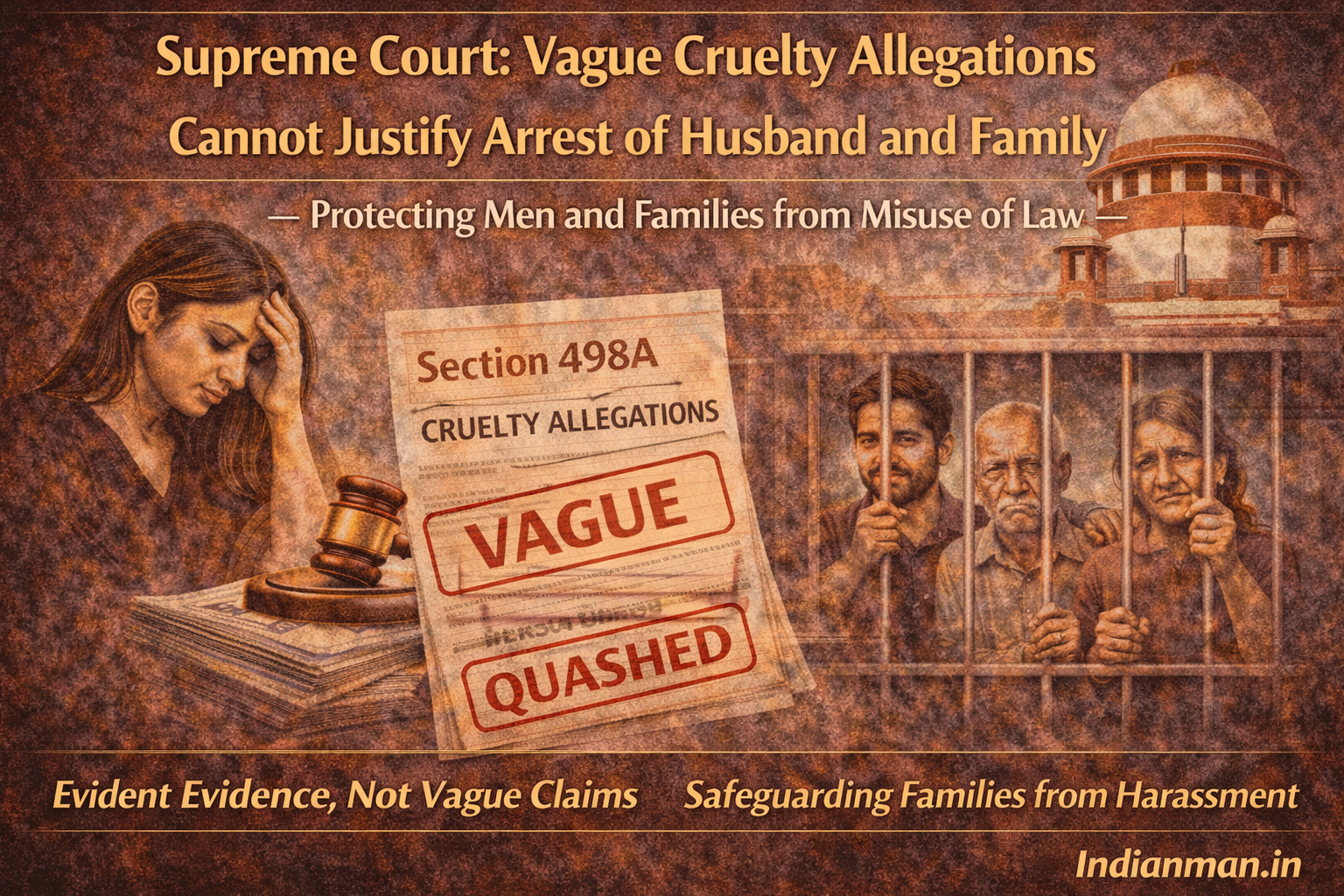After nearly 26 years of legal struggle, the Supreme Court has acquitted a man accused of cruelty and dowry harassment, while raising strong concerns about the misuse of Section 498A of the Indian Penal Code (IPC) and the Dowry Prohibition Act, 1961 in matrimonial disputes. The case is titled Rajesh Chaddha vs. State of Uttar Pradesh.
A Bench of Justices BV Nagarathna and Satish Chandra Sharma overturned the conviction, ruling that the allegations made by the complainant-wife were vague, general, and lacking specific details.
The Court highlighted that the term “cruelty” under Section 498A, IPC, is often misused without sufficient proof. It stressed that accusations must be backed by concrete evidence such as dates, times, medical proof, or specific instances rather than broad claims.
The judges also pointed out the disturbing trend of wives implicating multiple relatives—including aged parents, married sisters, and distant family members—without credible evidence. This, the Court said, undermines the purpose of the protective law and often leads to malicious prosecution.
The case dates back to 1999, when the wife alleged mental and physical cruelty, dowry harassment, and miscarriage due to assault. The trial court convicted the husband under Section 498A, IPC and Section 4 of the Dowry Prohibition Act, sentencing him to rigorous imprisonment of two and one year respectively. The Allahabad High Court upheld this decision in 2018.
However, the Supreme Court found that the claims were not supported by independent or medical evidence. It further noted that the couple had cohabited for only 12 days after their marriage in 1997, and that the FIR was filed only after the husband initiated divorce proceedings.
The Court ruled that criminal law requires proof beyond reasonable doubt and vague, unsubstantiated allegations cannot sustain conviction. Referring to earlier rulings, it reiterated that sweeping accusations against extended family members without specific acts of cruelty cannot be the basis for criminal prosecution.
In conclusion, the Supreme Court set aside the conviction and acquitted the man of all charges, cautioning against the growing misuse of Section 498A IPC and dowry laws in matrimonial disputes.
Be a part our social media community:
Facebook: https://www.facebook.com/IndianMan.in?mibextid=ZbWKwL
Instagram:
https://www.instagram.com/indianman.in?igsh=MWZ2N3N0ZmpwM3l3cw==




